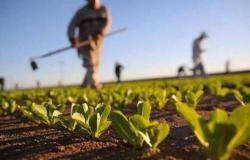FOGGIA – «The 2024 cereal campaign was strongly characterized by drought, with anomalously unseasonal heat which resulted in very high wheat quality but decidedly low yields per hectare in our province, both towards the coast and in the inland mountain areas. ; with farmers very worried about the company’s economic balance. A combination that hasn’t been seen for decades but which, with ongoing climate change, runs the risk of becoming a rule.” This was stated by Filippo Schiavone, president of Confagricoltura Foggia, who draws attention to the dispute over durum wheat, one of the excellent products of Foggia agriculture.
«Confagricoltura Foggia, aware of the strategic importance of the wheat economy for our territory, intends to proceed on a double track to protect one of the symbolic products of the Capitanata. On the one hand, it has urged at a national level, as the first trade association in Italy, the recognition of a relief fund for the areas affected by drought. On the other hand, however, it is implementing interventions for the valorisation and typification of the local product. A way to optimize the economic yield of our wheat along the supply chain. It is clear that what is worrying is the insufficiency of product for national needs which could push towards greater imports of wheat from other countries.
An excess which, if not adequately managed, could negatively influence local commodity exchanges in the compilation of price lists”, states Schiavone again who adds: “Only the ability to create a critical mass of producers, to impact supply and demand in the dynamics of product formation price, can help local companies in the medium to long term. We must avoid an excessive supply of product in the coming weeks. Only the input regulated on the real needs of the supply chain can help determine an adequate price for the quality of the local product”. In practice, the invitation is to deliver the grain to product organizations or farmers’ cooperatives. “We need an entrepreneurial logic to take shape here too – concludes Schiavone – which privileges systemic policies capable of valorising the work of cereal farmers. Large and small grain producers, for their part, must become aware that cereal cultivation in Capitanata has a future only if we are able to give adequate value to the quality of our grain.»





